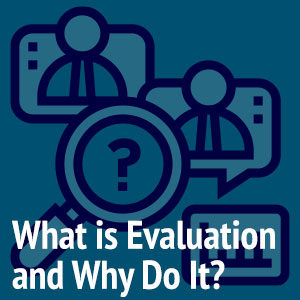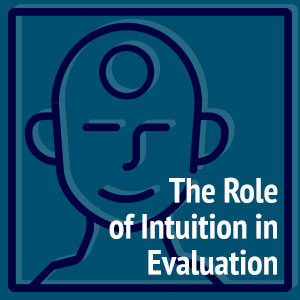 Programs are seldom implemented under pristine laboratory conditions. Instead, they occur in the real world, in real time. They unfold in complex environments, with ever-changing circumstances and unforeseeable developments. Consequently, program evaluations need to be adaptive, aware of the reality of programs’ often tumultuous contexts, and capable of suppleness and flexibility. This is especially true for evaluations that seek to assess the impact of innovative initiatives whose goals are often not standardized and pre-determined, but are evolving and emergent.
Programs are seldom implemented under pristine laboratory conditions. Instead, they occur in the real world, in real time. They unfold in complex environments, with ever-changing circumstances and unforeseeable developments. Consequently, program evaluations need to be adaptive, aware of the reality of programs’ often tumultuous contexts, and capable of suppleness and flexibility. This is especially true for evaluations that seek to assess the impact of innovative initiatives whose goals are often not standardized and pre-determined, but are evolving and emergent.
Over the last 20 years, Developmental Evaluation has emerged as an important evaluation approach for meeting the evaluation needs of innovative initiatives. As Michael Quinn Patton, a noted theorist and practitioner of Developmental Evaluation has noted,
“Developmental evaluation (DE) is especially appropriate for innovative initiatives or organizations in dynamic and complex environments where participants, conditions, interventions, and context are turbulent, pathways for achieving desired outcomes are uncertain, and conflicts about what to do are high. DE supports reality-testing, innovation, and adaptation in complex dynamic systems where relationships among critical elements are nonlinear and emergent. Evaluation use in such environments focuses on continuous and ongoing adaptation, intensive reflective practice, and rapid, real-time feedback.” (http://comm.eval.org/viewdocument/?DocumentKey=95f16941-7e8a-4785-907a-42615d919d7a )
Developmental Evaluation Serves Innovative Programs
While Developmental Evaluation is appropriate for many programs and organizations, it is especially useful for programs that aspire to continuous learning, that value adaptation, and that seek innovative means to address emerging (vs. “known”) issues. Such programs are typically found in the social philanthropic and non-profit sectors. Evaluators who practice Developmental Evaluation transcend the typical role of a traditional evaluator—they don’t just design formative or summative evaluations. Developmental evaluators work closely with decision makers, program designers and staff to ask key questions about program design and logic, to collect data—sometimes in rapid time frames—to inform real-time program implementation and refinement, and to ensure that programs consistently employ the principles of learning and continuous improvement. Patton observed in his book Utilization Focused Evaluation (3rd Edition):
“Developmental Evaluation refers to evaluation processes undertaken for the purpose of supporting program, project, staff and/or organizational development, including asking evaluative questions and applying evaluation logic for development purposes. The evaluator is part of a team whose members collaborate to conceptualize, design, and test new approaches in a long-term, on-going process of continuous improvement, adaptation and intentional change. The evaluator’s primary function is to elucidate them discussions with evaluative questions, data and logic, and to facilitate data-based decision-making…”
Brad Rose Consulting, Inc. utilizes the principles and insights of Developmental Evaluation. Our 20+ years of experience working with social entrepreneurs and innovative non-profit organizations has taught us that even seemingly “standard” program designs can benefit from a nuanced, responsive, context-sensitive, evaluation approach, one that draws on the practices of Developmental Evaluation. Additionally, innovative programs whose outcomes are not fully predictable nor exclusively pre-determined, will find that Developmental Evaluation provides the iterative feedback necessary to strengthen the program and to achieve enhanced outcomes. Because Developmental Evaluation is essentially consultative, integrative, and built on a constructive and supportive relationship between the evaluator and the organization’s staff, it offers programs designers, managers, and implementers superior insights into the complex, often rapidly changing conditions in which genuine innovations occur. To learn more about our program development methods visit our Program development & Funding page.
Resources:
A Developmental Evaluation Primer, at J.W. McConnell Family Foundation
http://volunteer.ca/node/1787
Video Michael Quinn Patton on Developmental Evaluation
Link to Michael Quinn Patton, Developmental Evaluation
https://www.abp.org/abpwebsite/r3p/pre-read/Patton.DevelopmentalEval.pdf
A conversation with Michal Quinn Patton
http://www.hfrp.org/evaluation/the-evaluation-exchange/issue-archive/family-support/a-conversation-with-michael-quinn-patton
“Developmental Evaluation: Applying Complexity Concepts to Enhance Innovation and Use.” Guilford Press New York. 2011



